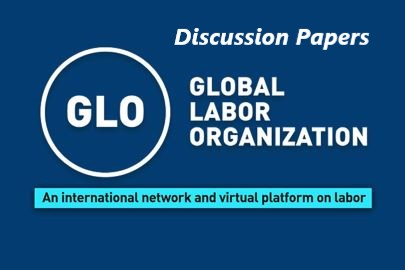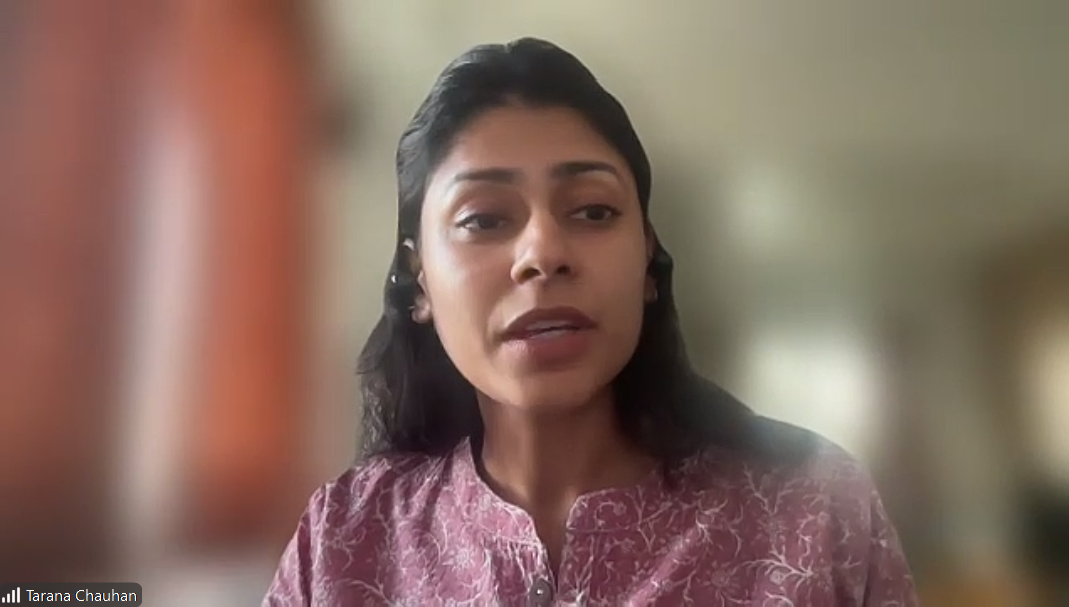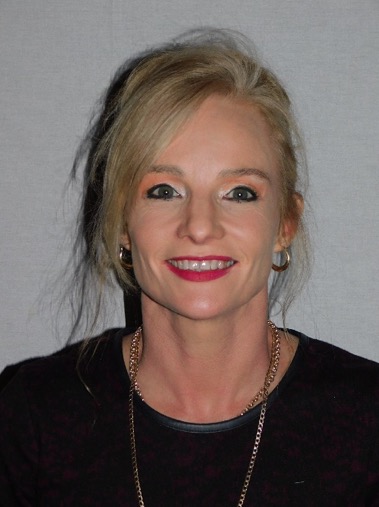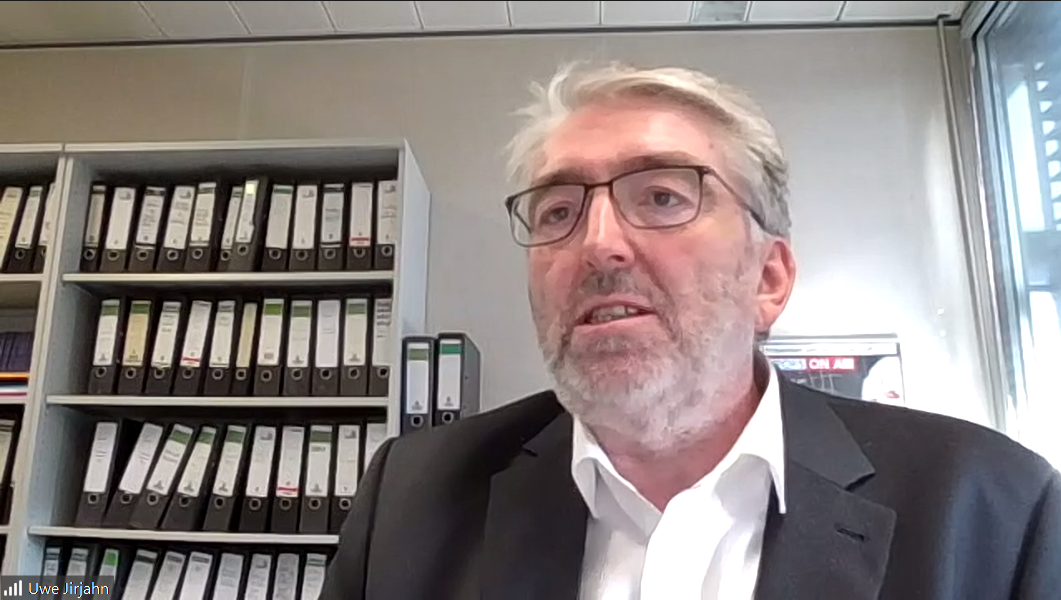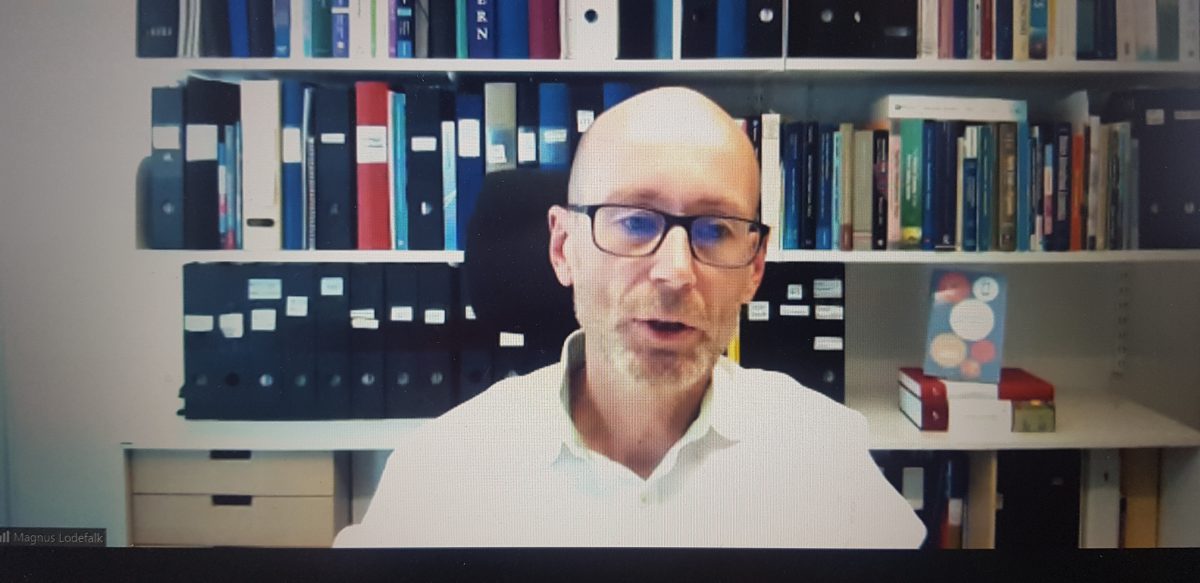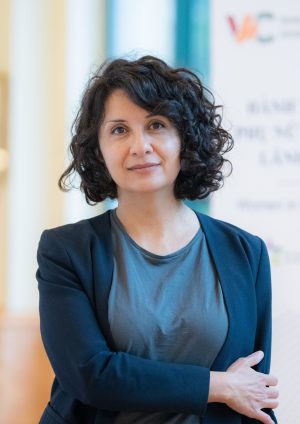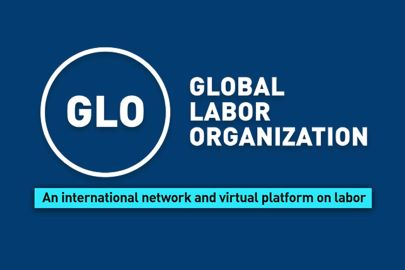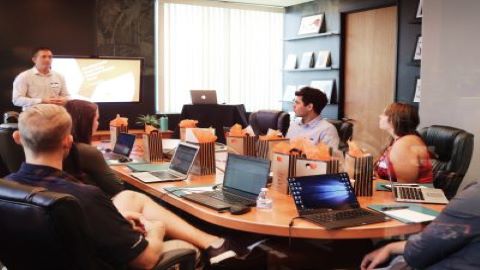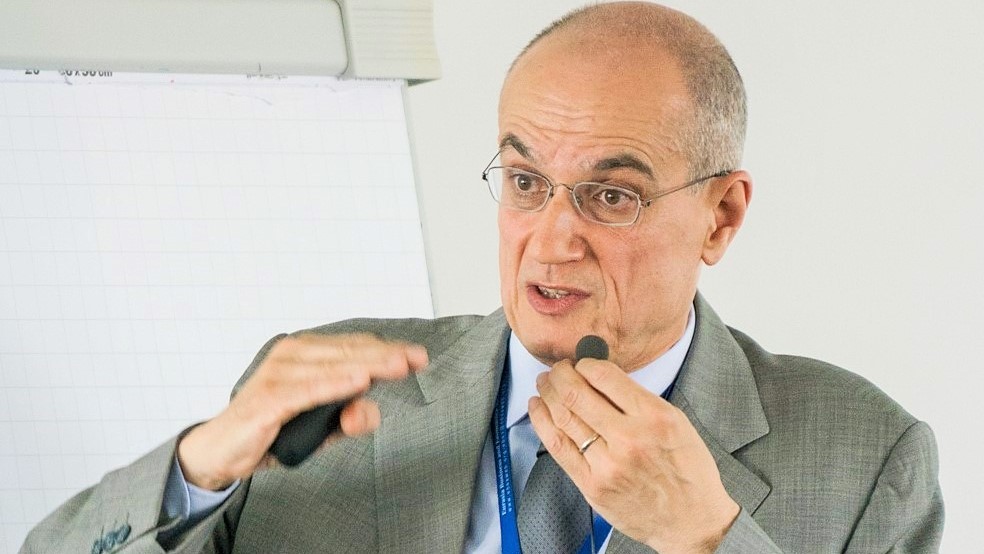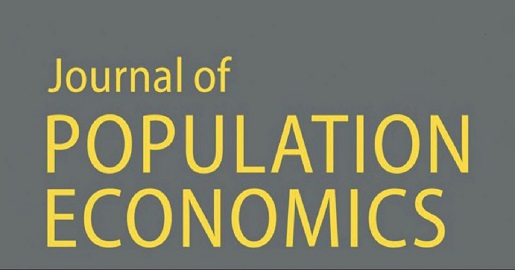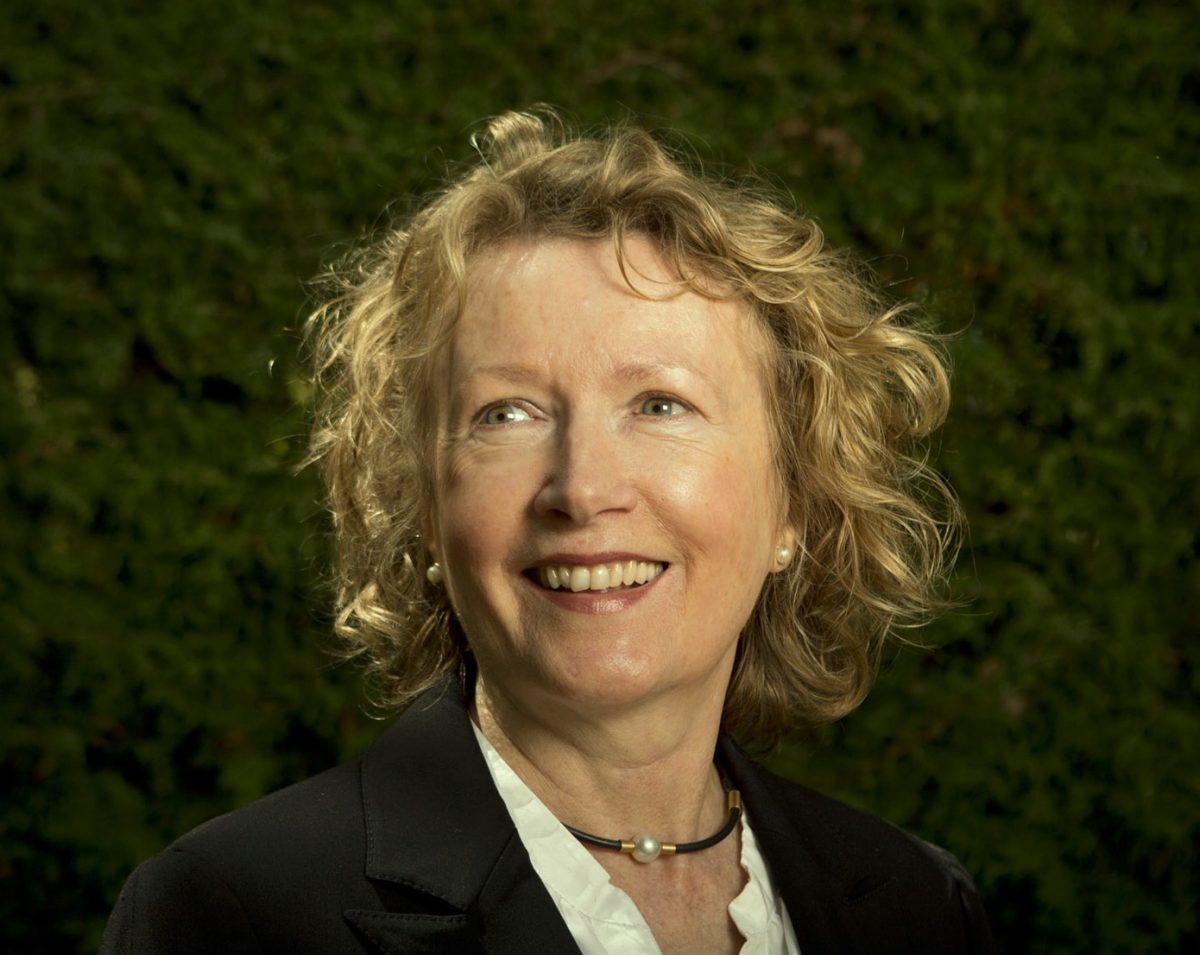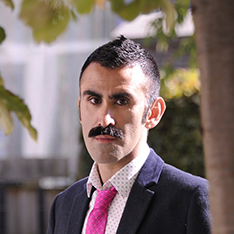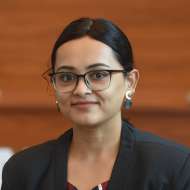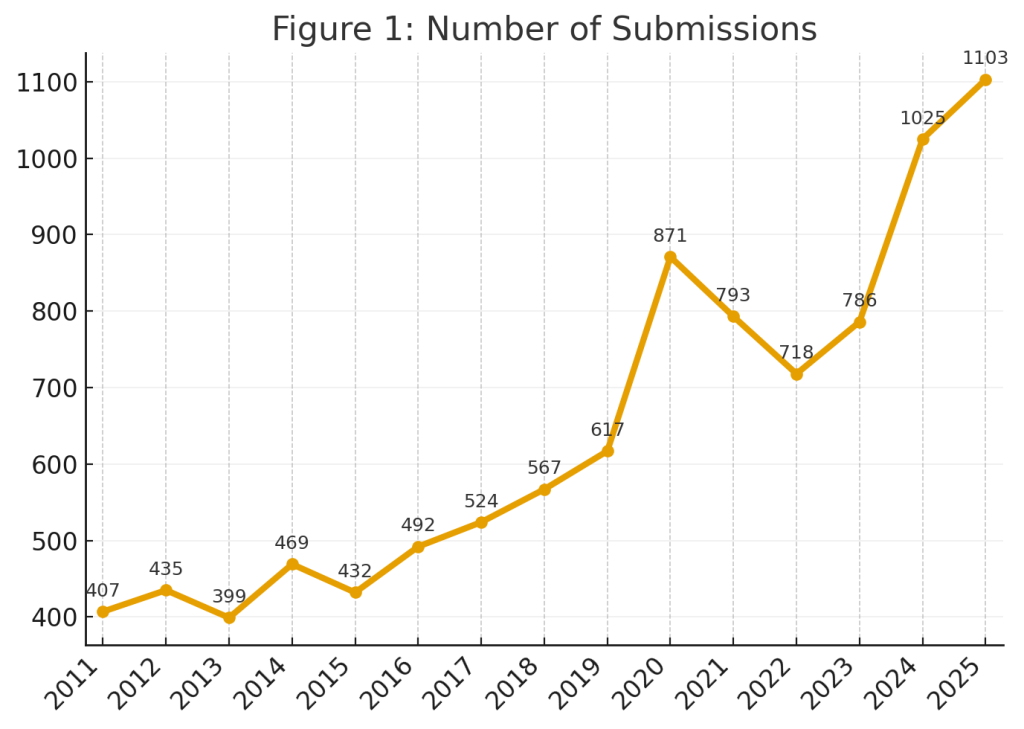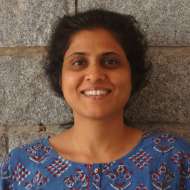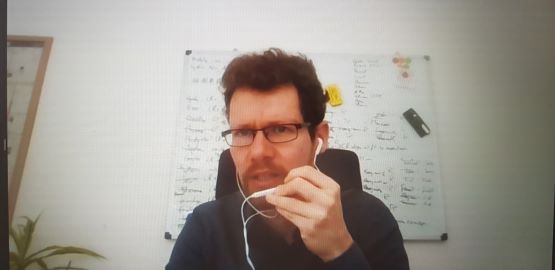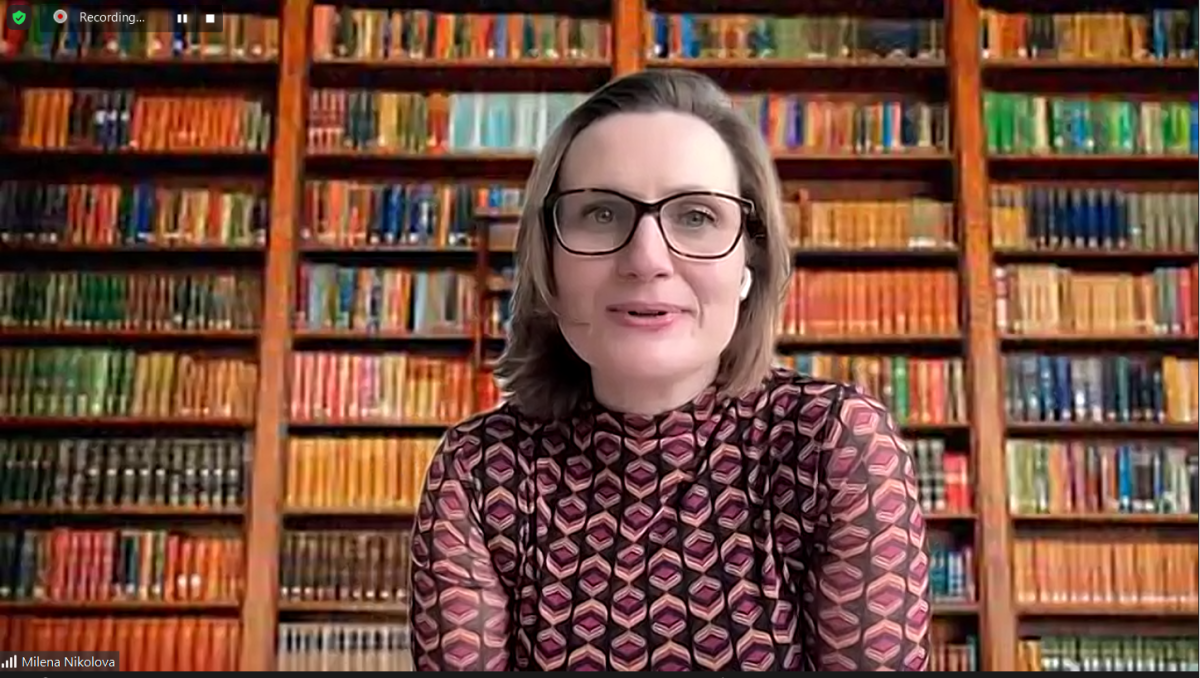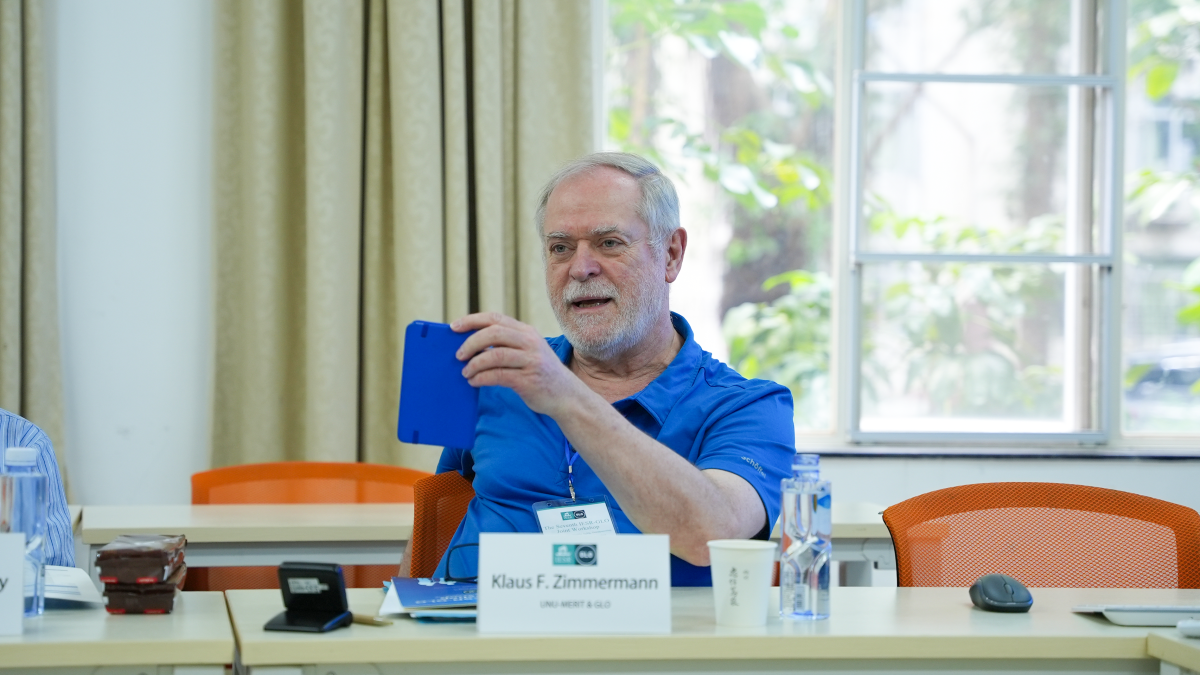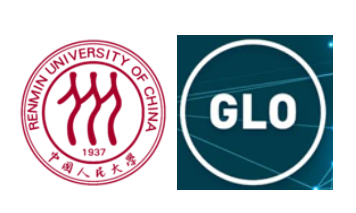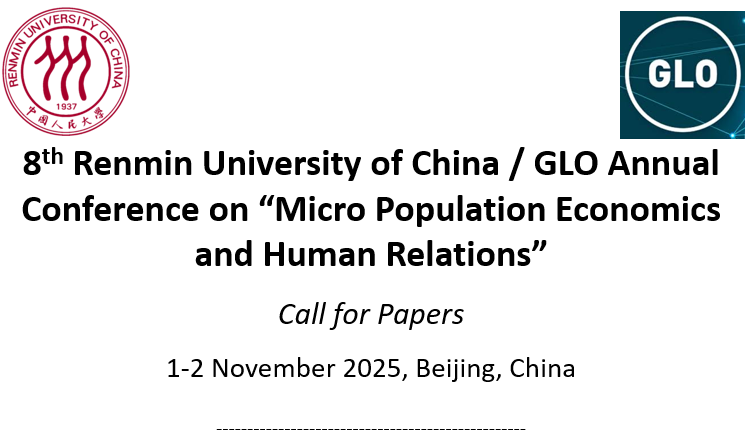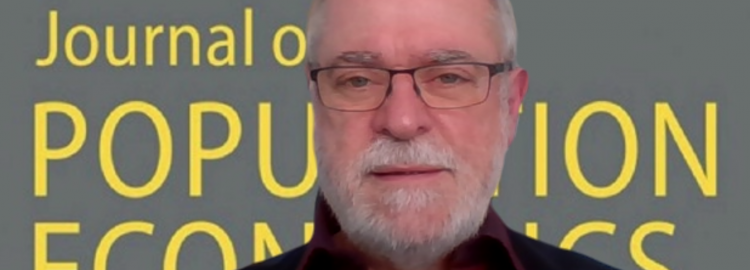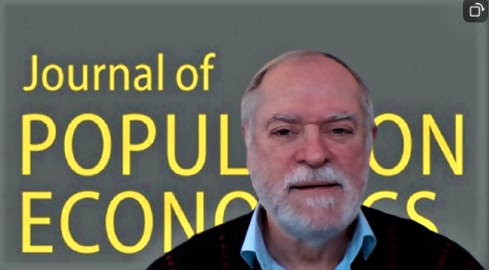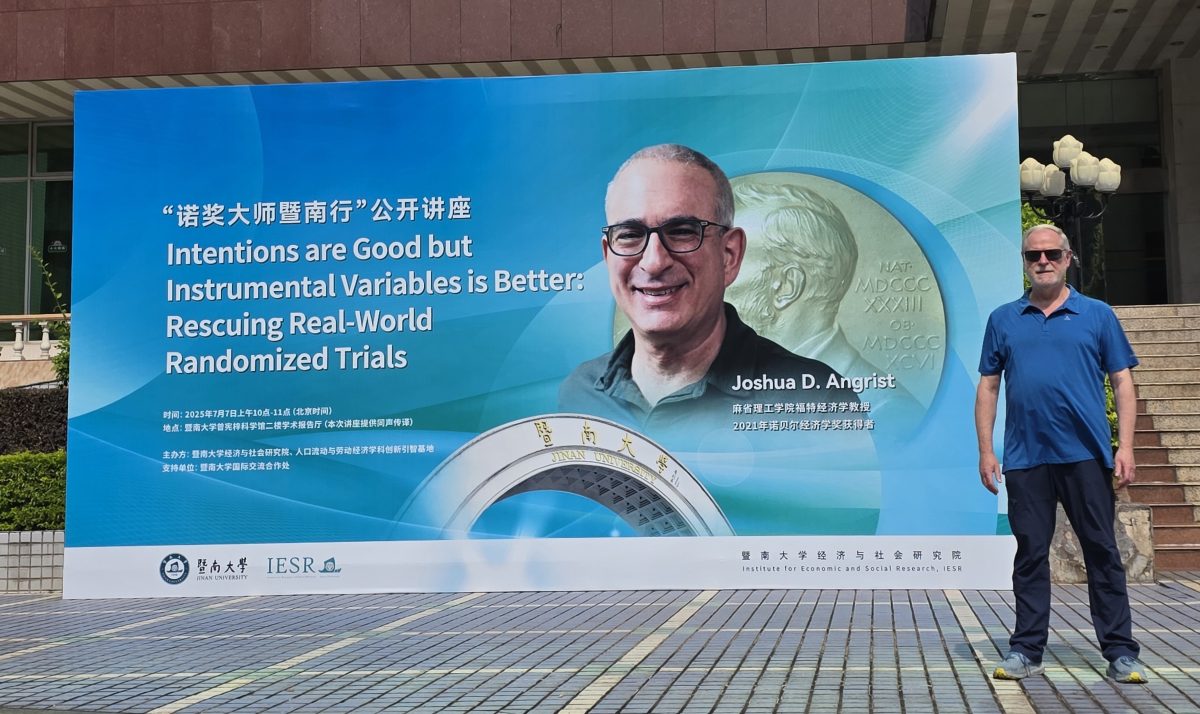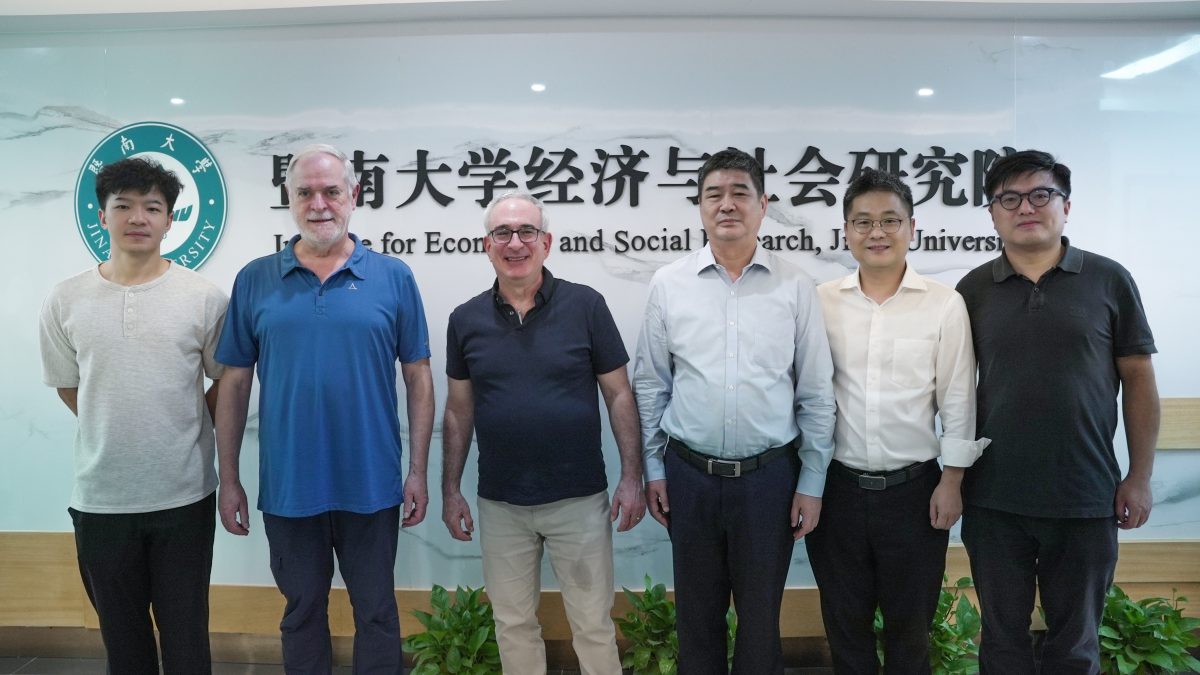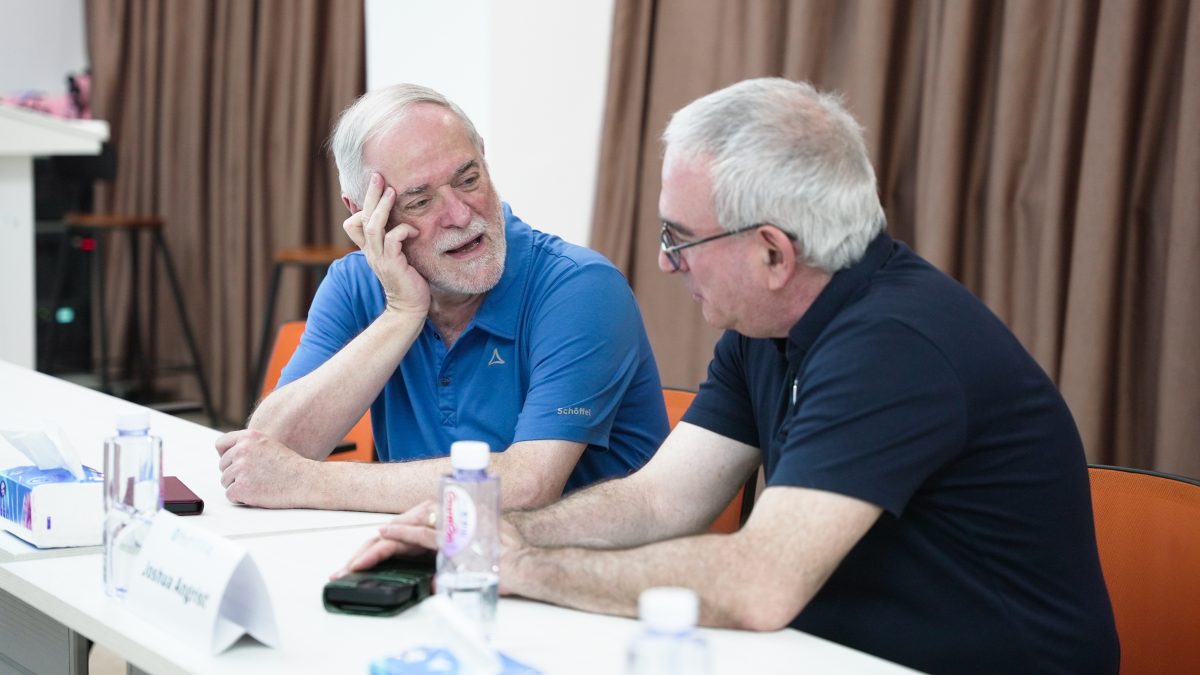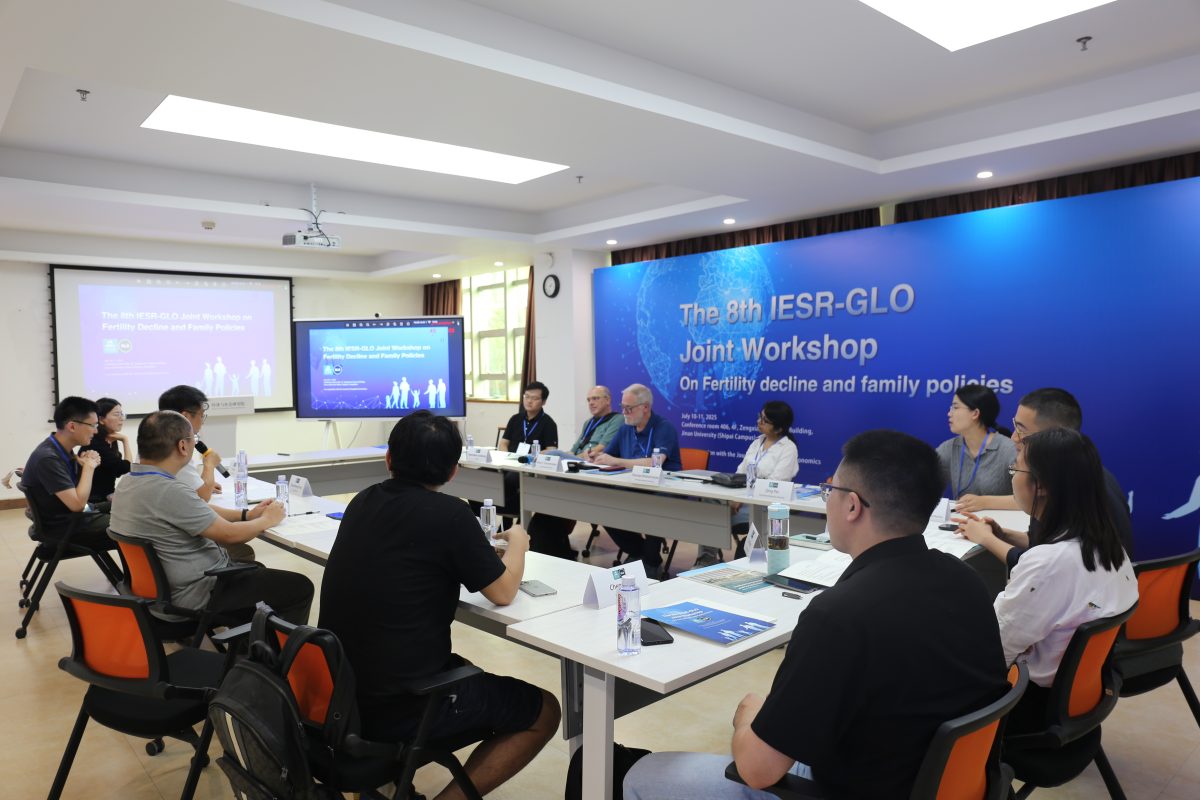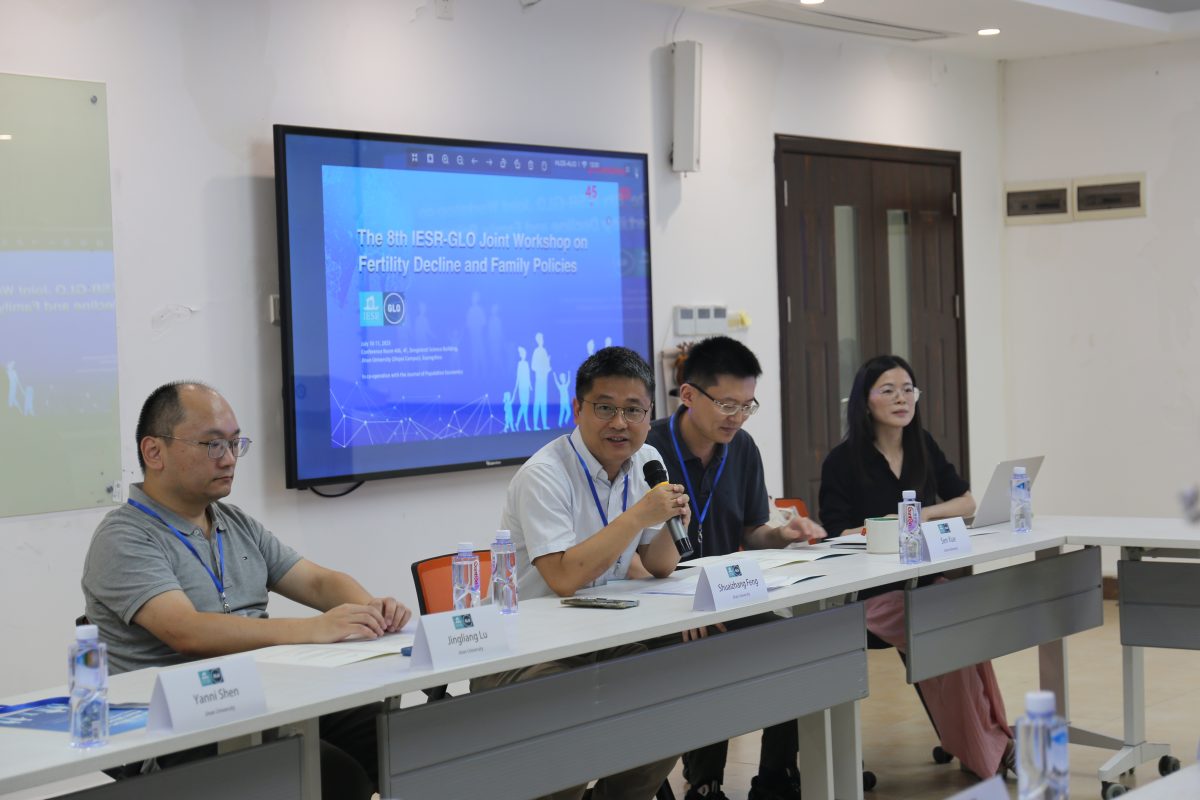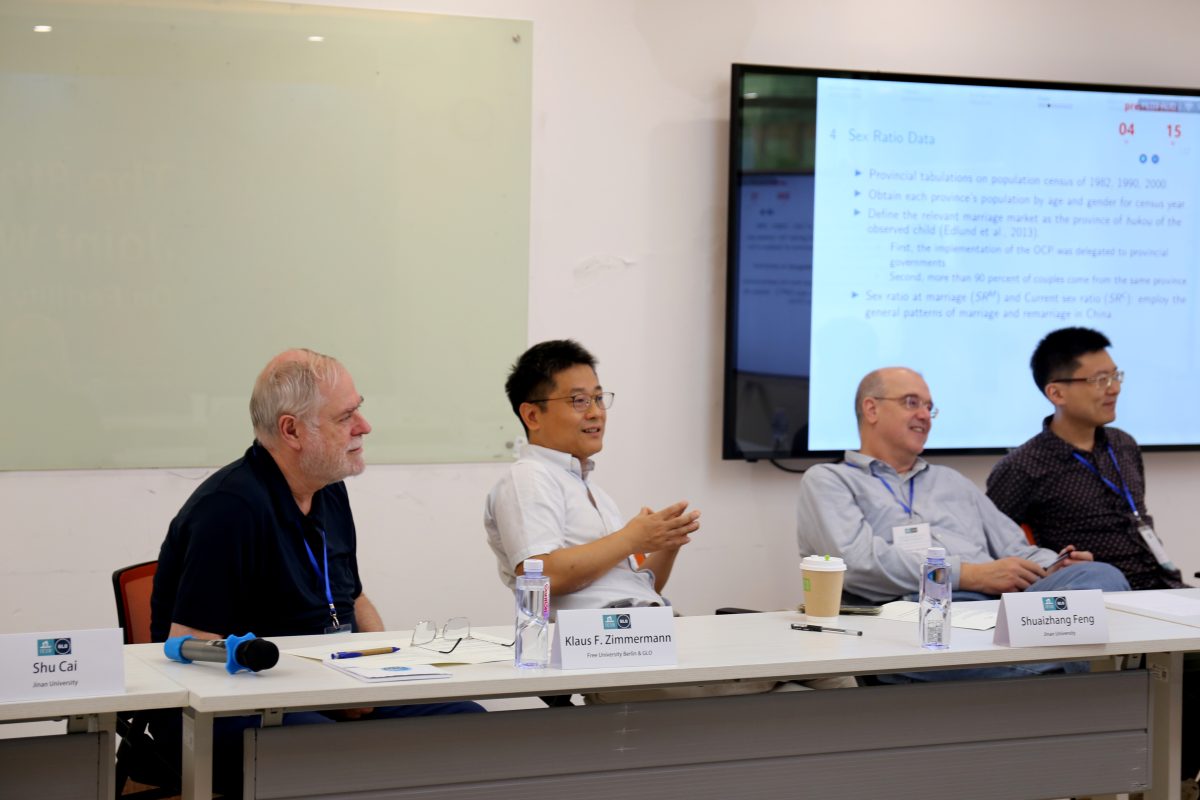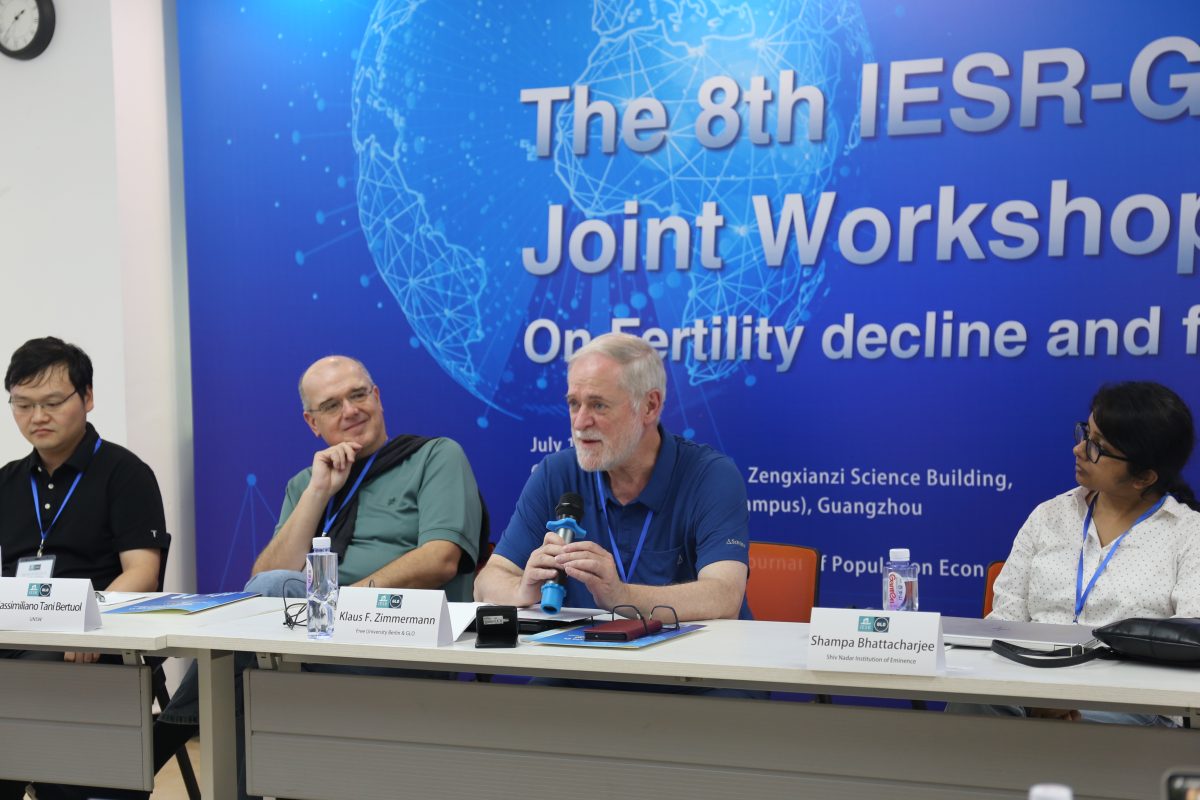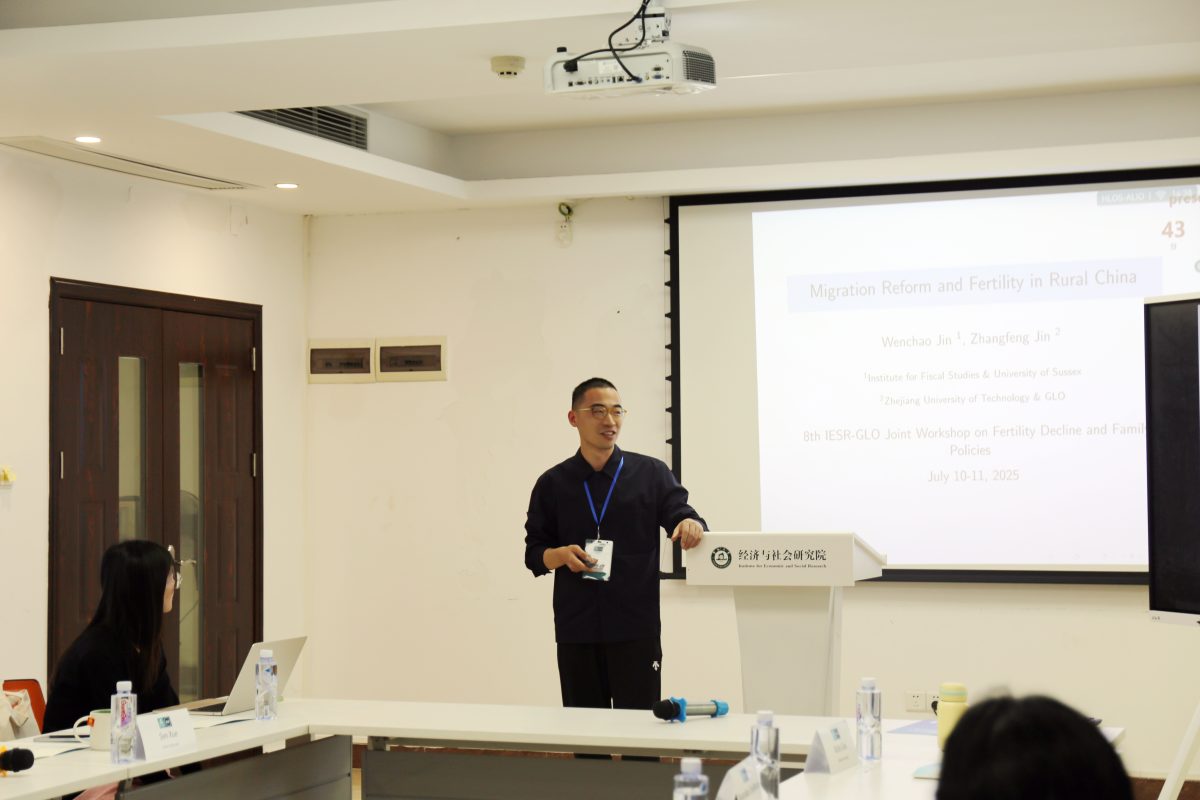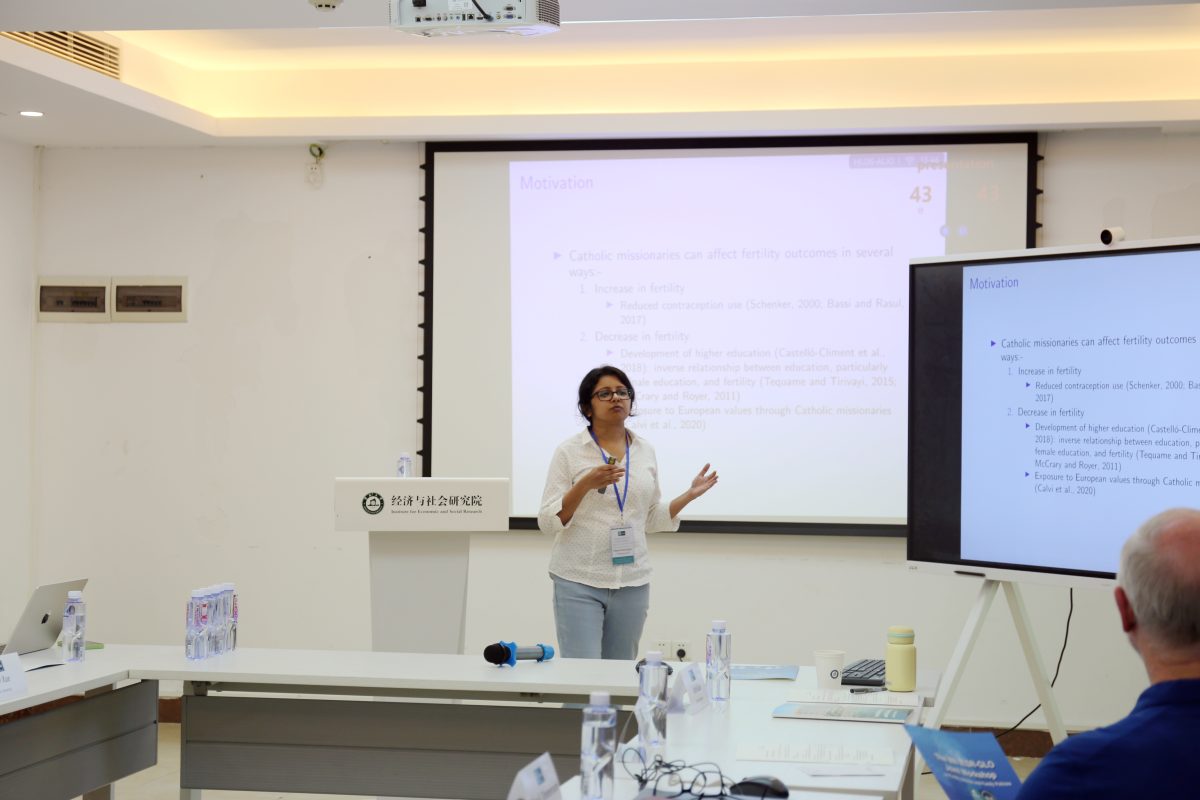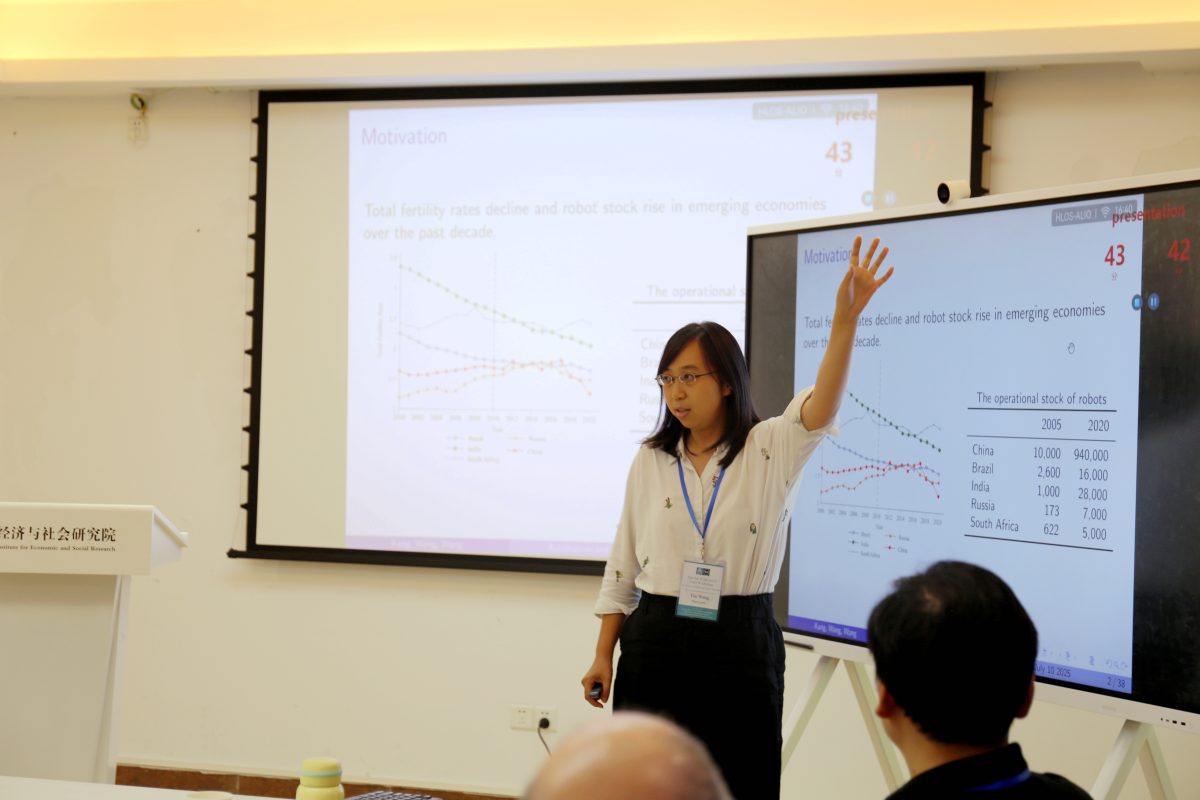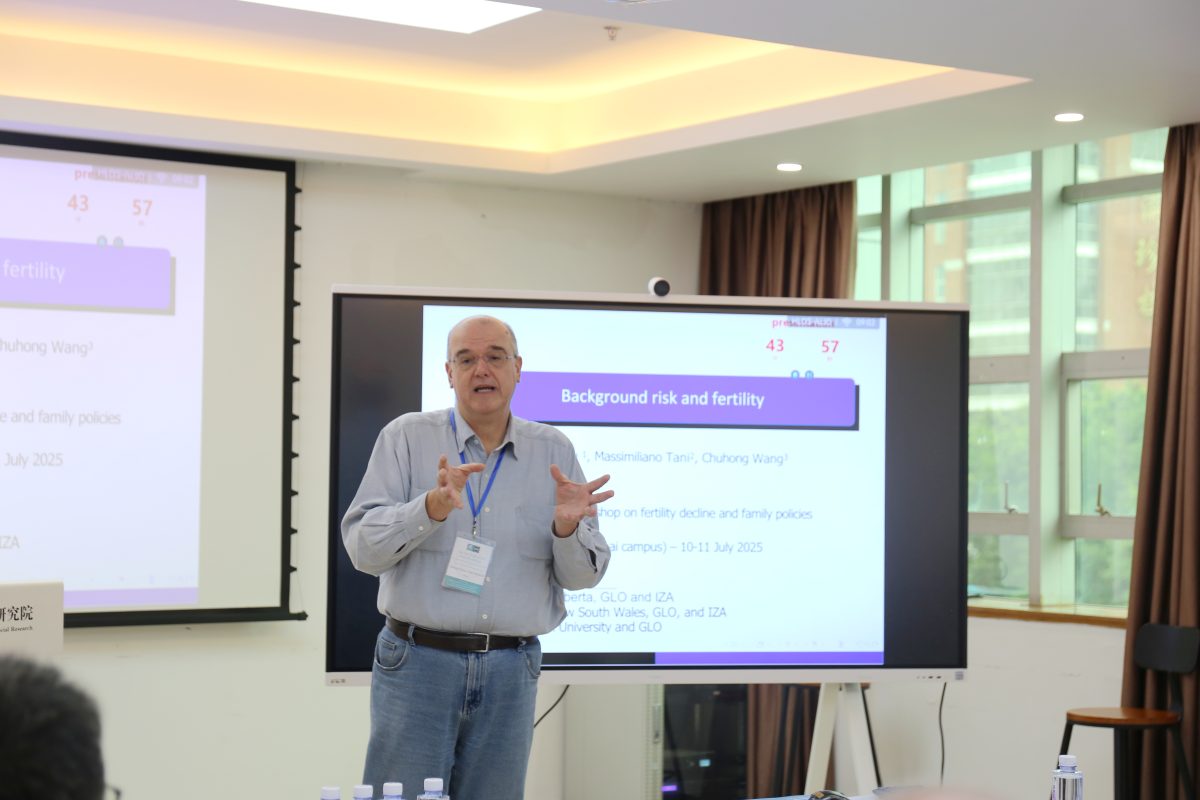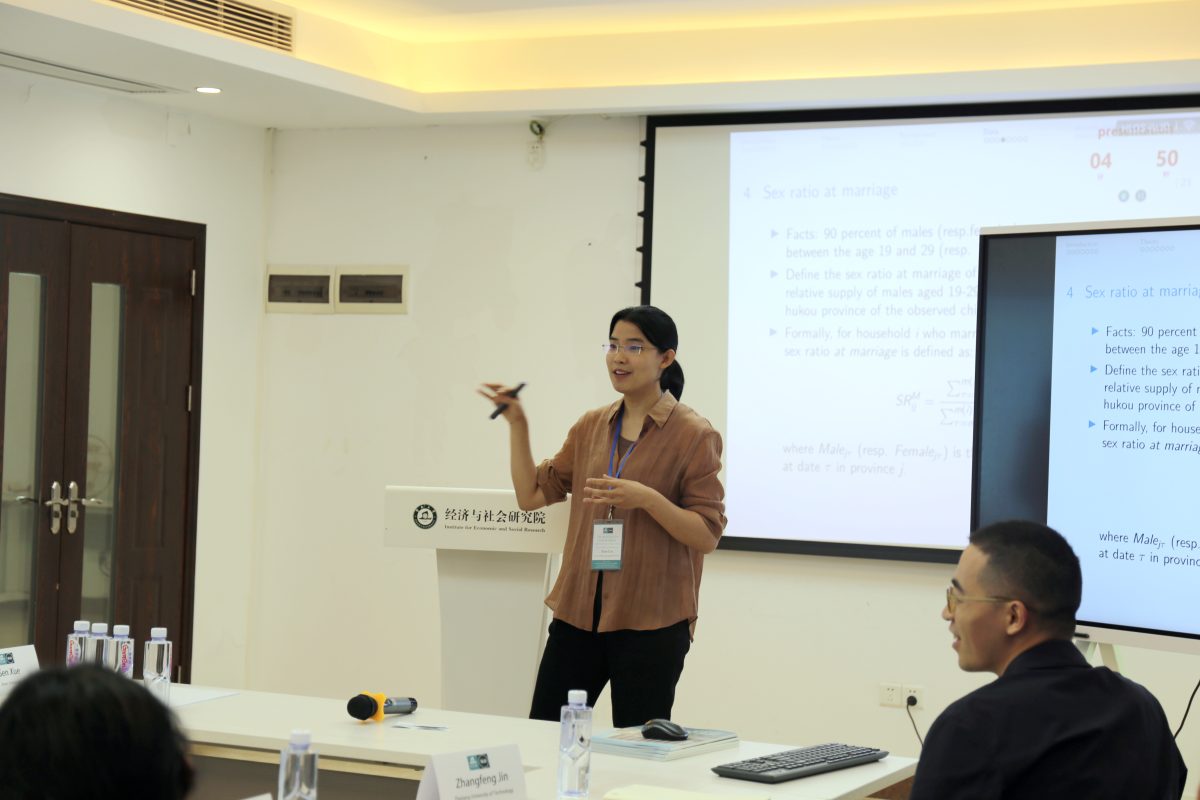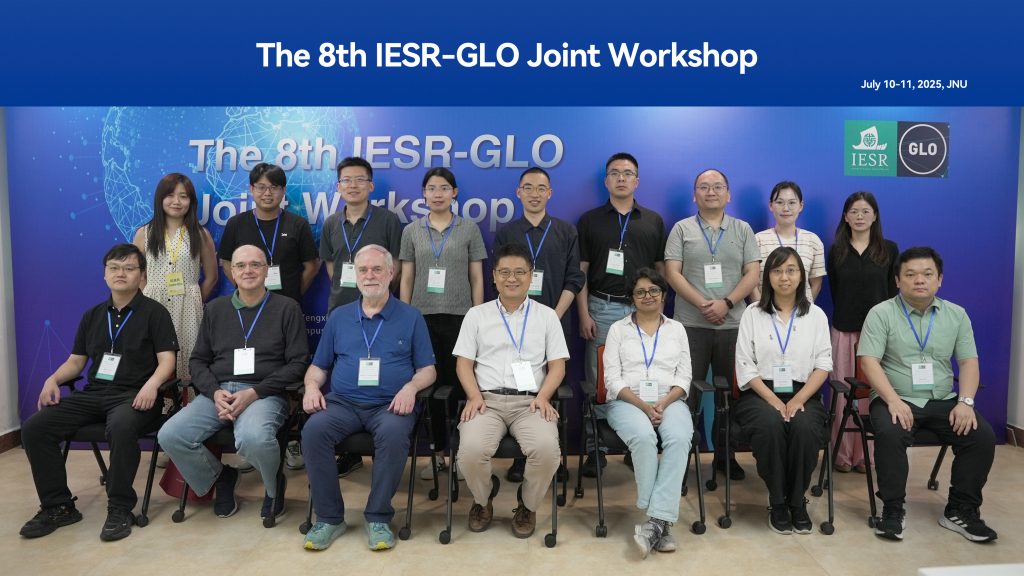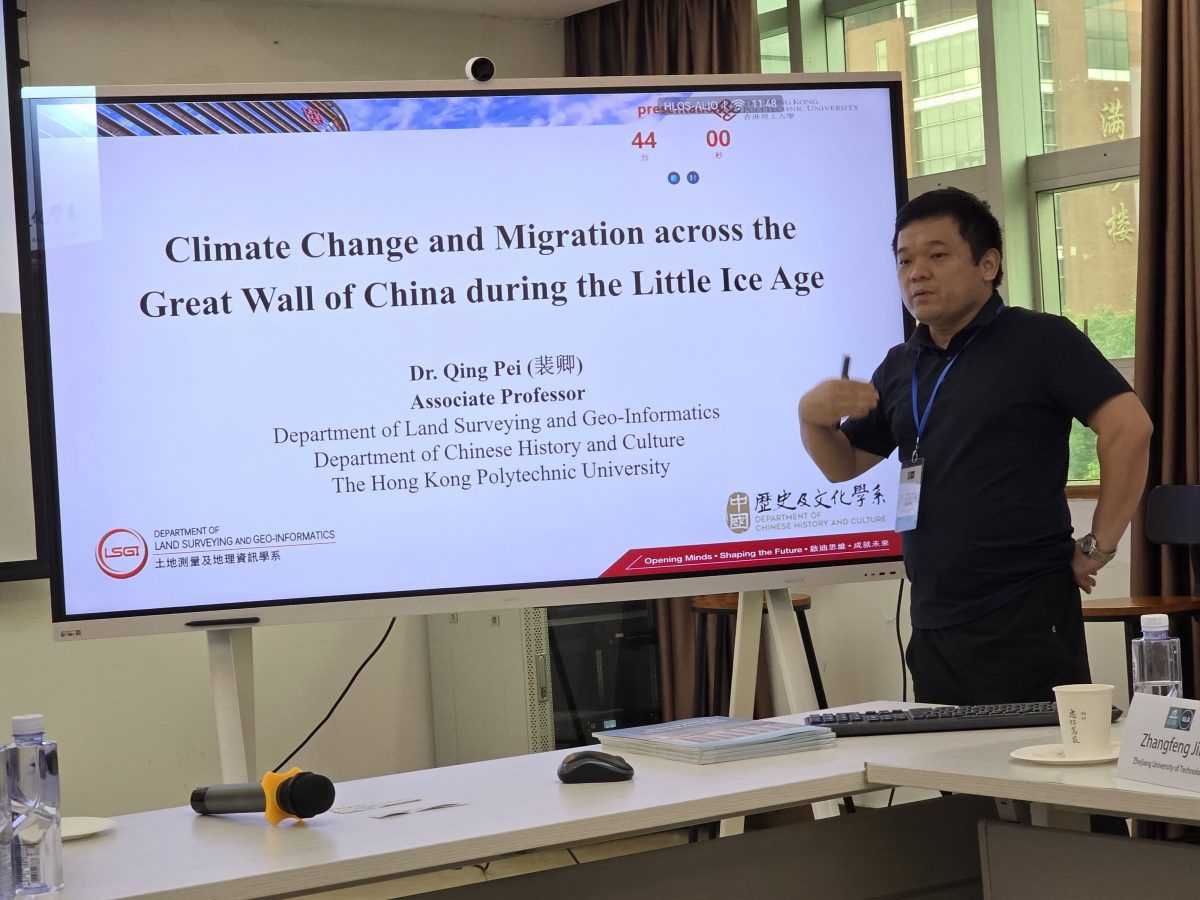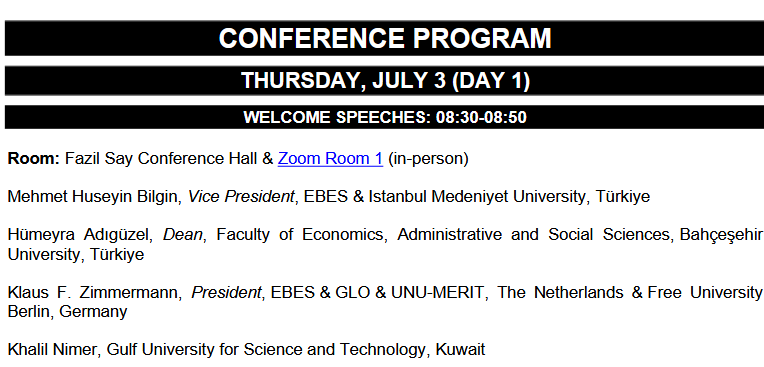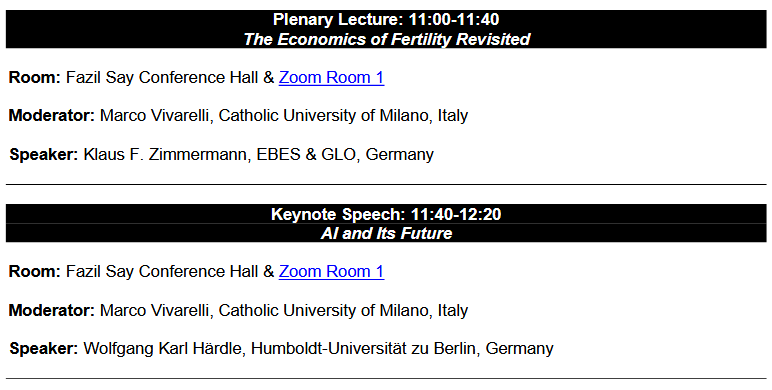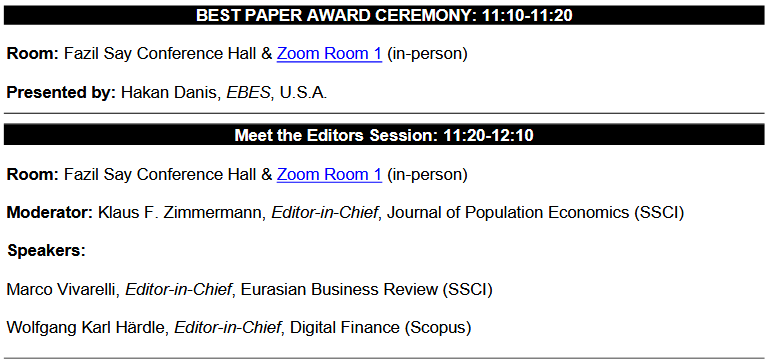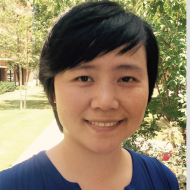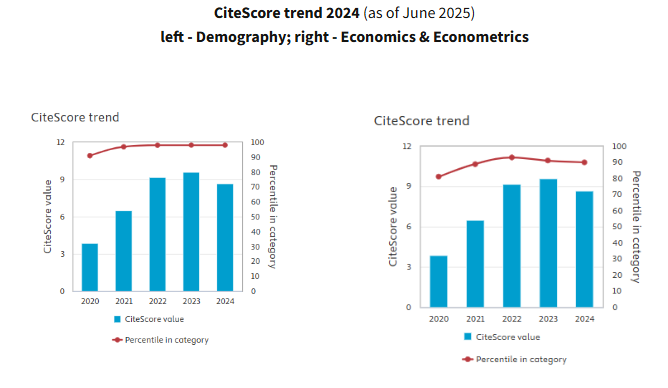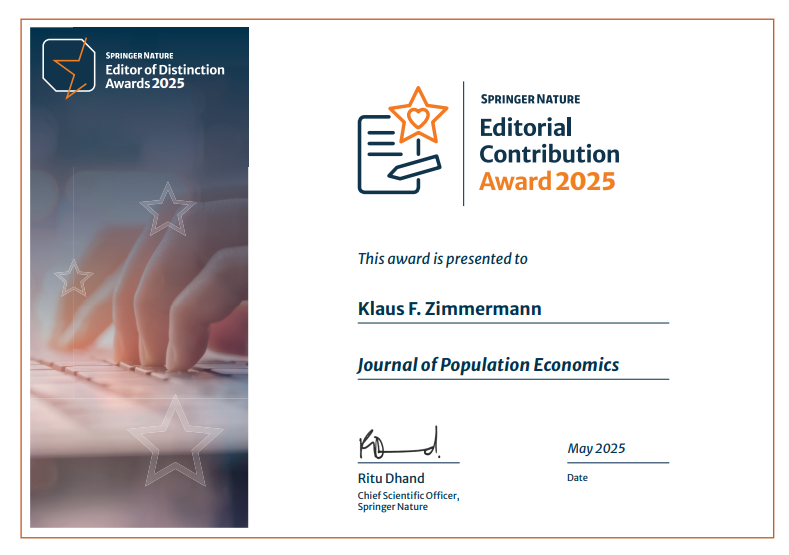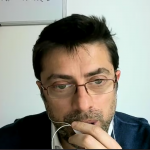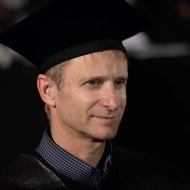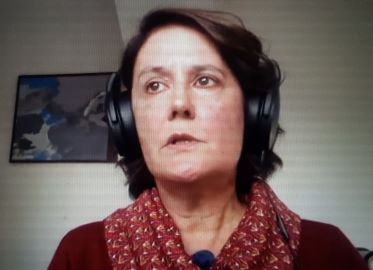- The full Program of the in-person & online Global GLO-JOPE Conference 2025, December 3-5 Bonn is available.
- Here we list DAY III (Dec. 5 CET) for your last minute orientation.
- Time schedule given below is CET (Berlin). Check Time Zone Converter to orient yourself.
- To be able to participate, you need to have registered already in the respective Zoom Rooms listed below. Registration Links and instructions to read are provided HERE.
December 5, 2025. All sessions are CET Berlin.
—- 0:30 BREAK
1:00-03:00 CET = 11:00-13:00 AEDT„Sydney II“. Australia-New Zealand-US West Coast & else
— Chair: Liwen Guo (University of New South Wales & GLO)
— Zoom Moderator: Max Tani (UNSW Canberra & GLO) ——— ROOM SYDNEY
- Maria Laura Di Tommaso (Università di Torino), Silvia Mendolia, Silvia Palmaccio, Giulia Savio (143)
Is Physical Unattractiveness a Risk Factor for Sexual Violence Perpetration? Evidence from the U.S
- Husame Doganay, Tony Fang, Xingfei Liu (University of Alberta), Saba Ranjbar, Arthur Sweetman. (47)
Earnings Assimilation in Canada (2006-2021): A Seemingly Unrelated Regression Approach
- Michael Windsor (Bankwest Curtin Economics Centre), Astghik Mavisakalyan, Loan Vu, Alan Duncan. (68)
Breathe In The Air: Institutional Quality, Political Participation and Air Pollution in Transition Countries
- Zhengwei YAN (Central University of Finance and Economics), Xu Zhang (Central University of Finance and Economics). (127-J)
The Externalities of Private Tutoring on Students’ Academic and Noncognitive Outcomes: Evidence and Mechanisms
3:00 BREAK
3:30-5:30 CET = 8:00-10:00 am New Delhi “India” ——— ROOM INDIA
— Chair: Kompal Sinha (Macquarie University, JOPE Editor & GLO)
— Zoom Moderator: Leena Bhattacharya (WageIndicator Foundation & GLO)
- Shobhit Kulshreshtha, Leena Bhattacharya (Tilburg University), Padmaja Ayyagari. Later Sunset, Better Health? GLO Discussion Paper 1648
- Souvik Banerjee, Preeti Jaiswal (IIT Bombay), Sankar Mukhopadhyay (142-J)
Motherhood and Labour Market Outcomes: Penalty or Premium?
- Kompal Sinha (Macquarie University). (48)
The relationship between socioeconomic status and life satisfaction during the COVID-19 pandemic in India: results from the IndiQol Study.
6:00 – 8:00 CET = 13:00 – 15:00 Beijing time IESR (China) Invited Session ——— ROOM CHINA
— Chair: Xue Sen (IESR & GLO)
— Zoom Moderator: Juno (Xiangyan) Qiu (IESR)
- Hanming Fang, Jiayin Hu, Miao Yu (Peking University)
Maternity Leave Extensions and Gender Gaps: Evidence from an Online Job Platform
- James Kai-sing Kung, Wenbing Wu (University of Melbourne)
The Rise of the Chinese Clan
- Yunbo Liu, Zexuan Wang (Minzu University of China), Zesen Zhang, Jue Bai, Xiaoyang Ye
Occupational Cognition and Employment Choices in Manufacturing: Evidence from the Information Intervention Experiment with Vocational College Students
- Xiaogang Li, Ze Song (Nankai University), Puyang Sun, Hong Zou
Stagnation and Differentiation in Growth: Quality Effects of Consumer Goods for Chinese Households
8:30 – 10:30 Three parallel sessions
8:30 – 10:30 FERTILITY in-person Bonn P-S1-3. ——— ROOM 1
— Chair: Gylfi Zoega (University of Iceland & GLO)
— Zoom Moderator: Liwen Guo (University of New South Wales & GLO)
- Sua Kang (Korea University), Wookun Kim, Kanghyock Koh. (30)
Childbirth, Baby Bonus, and Maternal Mental Health
- Vilmundur Torfason, Gylfi Zoega (University of Iceland) (69)
The impact of economic and social factors on fertility in Iceland, 2014-2022
- Niko Chtouris (Senior Editor Springer Nature)
Publishing with Springer Nature
GLO-supported book series in Population Economics:
Edumetrics. Measuring Human Capital for the 21st Century
Authors: Claude Diebolt, Nadir Altinok; forthcoming Springer 2026.
8:30 – 10:30 AFRICA I in-person Bonn P-S2-3. ——— ROOM 2
— Chair: Niels-Hugo Blunch (Washington and Lee University & GLO)
— Zoom Moderator: Leena Bhattacharya (WageIndicator Foundation & GLO)
- Salamatu Nanna Adam (CERGE-EI). (73)
Statistics and Stories: Experimental Evidence on HIV Testing in Ghana
- Adeola Oyenubi, Uma Kollamparambil, Lesego Masenya (University of the Witwatersrand). (93-J)
Comparative Life Evaluation: A Relative Density Analysis of Native and Migrant Populations
- Giorgio d’Agostino, Donatella Lanari, Luca Pieroni (University of Perugia) (102)
Shifting Attitudes: The Impact of COVID-19 on Perceptions towards Immigrants in Africa
8:30 – 10:30 POPULATION ECONOMICS online-only P-S3-3. ——— ROOM 3
— Chair: Shuaizhang Feng (IESR & Jinan University & JOPE Editor, GLO)
— Zoom Moderator: Mehrzad Baktash (University of Trier & GLO)
- Sofya Feygenson (Korea Advanced Institute of Science and Technology), Jun Hyung Kim (Korea Advanced Institute of Science and Technology). (86)
Unstable Jobs, Delayed Families: A Hidden Markov Model of Life-Course Transitions in South Korea
- Wenjun Zhao (Hitotsubashi University).(45-J)
The Role of Collateral in Marriage: How Property Division upon Divorce Affects Household Labor Supply.
- Bastien Bernela, Liliane Bonnal, Inès TOURE (Poitiers Economics Laboratory, University of Poitiers), and Ahmed Tritah. (148-J)
Educational mismatch, spatial mobility, and wage inequality: Evidence from France young graduates
- Despina Gavresi (University of Luxembourg), Andreas Irmen, Anastasia Litina (70-J)
Population Aging and the Rise of Populism in Europe
10:30 BREAK
11:00-13:00 Three parallel sessions
11:00-13:00 WELLBEING in-person Bonn P-S1-4. ——— ROOM 1
— Chair: Mehrzad B. Baktash (University of Trier & GLO)
— Zoom Moderator: Liwen Guo (University of New South Wales & GLO)
- Giulia Briselli (ESCP Business School), Wookun Kim (SMU, CESifo). (29)
Unintended Consequences of Immigration Reform: Marriage Market, Intra-Household Bargaining, and Well-Being.
- Mehrzad B. Baktash (University of Trier & GLO). (2)
Home Alone? Work from Home and Loneliness.
- Olena Nizalova (University of Kent, VirtYS & GLO)
GLO’s Young Scholar Monitoring Program (VirtYS)
GLO-supported book series in Population Economics:
Loneliness in Europe. Determinants, Risks and Interventions
Editors: Sylke V. Schnepf, Béatrice d’Hombres, Caterina Mauri; Springer 2024, Open Access
11:00-13:00 AFRICA II in-person Bonn P-S2-4. ——— ROOM 2
— Chair: Kirsten Schüttler, Chief Economist Africa, GIZ & GLO
— Zoom Moderator: Leena Bhattacharya (WageIndicator Foundation and GLO)
- Niels-Hugo Blunch (Washington and Lee University & GLO) (112-J)
Stairway to Heaven? Human Capital and Religion in Ghana
- Christiaan de Swardt (RWI-Leibniz Institute for Economic Research & Ruhr University Bochum), Renate Hartwig. (17)
The Marriage Squeeze: Measuring and Explaining Marriage Market Dynamics in Sub-Saharan Africa.
- Luca Buzzanca, Carlo Caporali (Gran Sasso Science Institute) (50-J)
Drought, Mafia and Slavery: The Nigeria-Italy Case Study
11:00-13:00 CIVIC ENGAGEMENT online-only P-S3-4. ——— ROOM 3
— Chair & Zoom Moderator: Matloob Piracha (University of Kent & GLO)
- Vijetha Koppa (Zayed University Dubai) (36)
Does easier access to Alcohol increase Domestic Violence – Evidence from Local Option Elections
- Pawani Dasgupta (University of Groningen), Maite Laméris, Milena Nikolova. (104) Macroeconomic Conditions during the Impressionable Years and Adult Civic Engagement
- Yaron Zelekha (Ono Academic College) (9)
Systemic Bias in Criminal Justice: Evidence from Two Natural Experiments
- Hai-Anh H. Dang (World Bank), Cuong Viet Nguyen (111)
Employing data imputation to track poverty and welfare trends over extended time periods: An application to a poorer country
13:00 LUNCH BREAK
14:00 – 16:00 Two parallel sessions
14:00 – 16:00 FAMILY in-person Bonn P-S1-5. ——— ROOM 1
— Chair: Eva Dziadula (University of Notre Dame & GLO)
— Zoom Moderator: Mehrzad Baktash (University of Trier & GLO)
- Stefan Schneck (Institut für Mittelstandsforschung)
The origins of entrepreneurship: How parental role models and socialization shape later entrepreneurial intentions
- Bilal Ahmad Bhat, Gargi Sarkar (IIT Kanpur), Sarani Saha, Sounak Thakur. (129) Dowries, Debts and Children’s Learning Outcomes: Evidence from India
- Cynthia Bansak, Eva Dziadula (University of Notre Dame), Madeline Zavodny. (21)
The Role of Coresident Grandparents in Maternal Employment among Asians in the US.
14:00 – 16:00 CARE in-person Bonn P-S2-5. ——— ROOM 2
— Chair: Olena Nizalova (University of Kent & GLO)
— Zoom Moderator: Kishan Narayan (Northeastern University & GLO)
- Andrea Berlanda (Università di Padova), Elisabetta Lodigiani, Lorenzo Rocco (84)
Immigration and Adult Children’s Care for Elderly Parents: Evidence from Western Europe
- I Chun Chen (Mahidol University), Ruttiya Bhula-or (56-J)
Economic Sustainability of Community-Based Long-Term Care for Aging Populations: A Comparative Qualitative Analysis of Labor Market and Financing Challenges in the United States and Thailand
- Olena Nizalova (University of Kent), Julien Forder
Revisiting the Economic Case for Social Care Spending: Informal Care
16:00 BREAK
16:30-18:30 Final session Bonn
16:30-18:30 HEALTH III in-person P-S1-6. ——— ROOM 1
— Chair: Holger Strulik (University of Goettingen)
— Zoom Moderator: Mehrzad Baktash (University of Trier & GLO)
- Josep Amer Mestre, Manuel Serrano-Alarcon (Joint Research Centre) (99-J)
Unpacking the Current Surge in Sick Leave: Insights from Spanish Administrative Data
- Siew Ling Yew (Monash University), Jie Zhang. (124)
Health externalities to labor productivity and optimal policies with endogenous fertility, labor, and longevity
- Jakob Madsen, Zeresh Errol, Holger Strulik (University of Goettingen). (59-J)
From Spirits to Crime: Two Centuries of Alcohol and Homicide in the West
18:30 Conference End in Bonn
Optional trips to Christmas Markets in Bonn & Bonn – Bad Godesberg
19:00 – 21:00 GLO JOBMARKET SESSIONS NORTH AMERICA I + II
( 2 parallel sessions in breakout rooms. Note that participants will be able to move between the two sessions once entered the room.)
EASTERN TIME: 13:00–15:00 ——— ROOM AMERICA
Session 5.A: Health Economics — North America
— Chair: Bingxiao Wu (Rutgers University)
— Zoom Moderator: Shobhit Kulshreshtha (Uppsala University & GLO )
1. Ami Adjoh-Baliki (Howard University, ami.adjoh@bison.howard.edu), Intimate Partner Violence Exposure and Child Mental Health in Ghana , https://amiadjohbaliki.com/
2. Vikrant V Kamble (University of Delaware, vvkamble@udel.edu), The 1973 Oil Embargo and Infant Health Outcomes: Evidence from a Macroeconomic Shock, https://vikrant-v-kamble.github.io/
3. Zincy Wei (Northwestern University (Kellogg), zixin.wei@kellogg.northwestern.edu), The Economics of Choosing Traditional Medicine: Theory and Evidence from India , https://sites.google.com/view/zincy-wei/home
4. Elizabeth Krause (University of Kentucky, elizabeth.krause@uky.edu), The Effect of Immediate Postpartum Contraceptives on Teen Birth Spacing and Infant Health: Evidence from Changes in the Medicaid Payment Structure, https://sites.google.com/view/elizabethkrause/
5. Arin Shahbazian (Virginia Tech, arin1989@vt.edu), Time to Weight Loss and Subsequent Weight Maintenance: A Survival Analysis, https://arin-shahbazian.github.io/
6. Yu Liu (Tulane University, yliu79@tulane.edu), Higher Education and Adult Health: Evidence from China’s College Entrance Exam Suspension, https://kellyyliu.github.io/
Discussants:
- Tewodros G. Gutema, tewodros.gutema@bison.howard.edu
- Jesugnon Ezechias Djima, jdjima@uh.edu
- Md Tahmeed Hossain, tahmeedh@mail.smu.edu
- Matthew McKetty, mcketty@wisc.edu
- Anushka Mullick, amullic2@binghamton.edu
- Shailee Manandhar, shailee.manandhar@rutgers.edu
Session 5.B: Human Capital, Education, and Labor Markets — North America
— Chair: Tyler Ransom (University of Oklahoma & GLO)
— Zoom Moderator: Shobhit Kulshreshtha (Uppsala University & GLO)
1. Claire Kim (University of Wisconsin-Madison, ckkim3@wisc.edu), Incentivizing Effort: Conditional Pocket Money and Adolescent Skill Formation, https://sites.google.com/view/clairekykim
2. Ke Lyu (University of Nevada, Reno, lvke1220@gmail.com), How do minimum wages affect nonemployer businesses in the United States?, https://kerrlyu.github.io/
3. Md Wahid Ferdous Ibon (Rutgers University, mfi16@economics.rutgers.edu), The Effect of Parental Job Loss on College Enrollment and Dropout in the US, https://www.wahidferdousibon.com/
4. Taekyu Eom (University at Buffalo, SUNY, taekyueo@buffalo.edu), Cap-and-Apply: Unintended Consequences of College Application Policy in South Korea, https://sites.google.com/view/taekyueom
5. Seungmin Yang (Kansas State University, yangsm9597@ksu.edu), More Peers, Less Support?: International Peer Effects in Doctoral Programs, https://sites.google.com/view/mikeyang/home
6. Sudong Hua (Shanghai Institute for Mathematics and Interdisciplinary Sciences, Fudan University., sudonghua.econ@gmail.com), Limits to Skill-based Countercyclical Adaptation in Business Cycles, https://sites.google.com/view/sudonghua/
Discussants:
- Lei Bill Wang, wang.13945@osu.edu
- Sabarna Mukherjee, sabarnamoU@gmail.com
- Lele Zhao, lzhao6@tulane.edu
- Ge Sun, gsun4@nd.edu
- Zhiyang Feng, zfeng56@wisc.edu
- Xuchao Gao, xuchaog@smu.edu
21:00 BREAK
21:30 – 23:30 GLO JOBMARKET SESSIONS NORTH AMERICA III + IV
( 2 parallel sessions in breakout rooms. Note that participants will be able to move between the two sessions once entered the room.)
EASTERN TIME: 15:30 – 17:30 ——— ROOM AMERICA
Session 6.A: Labor and Demographic Economics — North America
— Chair: Fan Wang (Houston & GLO)
— Zoom Moderator: Shobhit Kulshreshtha (Uppsala University & GLO)
1. Lei Bill Wang (Ohio State University, wang.13945@osu.edu), Attention vs Choice in Incomplete Welfare Take-up: What Works for WIC?, https://sites.google.com/view/leibillwang/home?authuser=0
2. Sabarna Mukherjee (University at Buffalo, sabarnamoU@gmail.com), The Cyclical Behavior of a Firm’s Optimal Market and Referral Hiring, https://sites.google.com/view/sabarnamukherjee/about
3. Lele Zhao (Tulane University, lzhao6@tulane.edu), Education as Insurance: Property Division and Women’s Education, https://lelezhao-econ.github.io/
4. Ge Sun (University of Notre Dame , gsun4@nd.edu ), Expected Fertility, Labor Market Contracts, and the Gender Wage Gap, https://sybil-sun.github.io
5. Zhiyang Feng (University of Wisconsin Madison, zfeng56@wisc.edu), Where Are You From and What Will You Choose? Career Path and Intergenerational Mobility, https://sites.google.com/wisc.edu/zhiyangfeng/home
6. Xuchao Gao (Southern Methodist University, xuchaog@smu.edu), Single by Choice or Rejection? Evidence on Mating Preferences in China, https://xuchaogao.github.io
Discussants:
- Ami Adjoh-Baliki, ami.adjoh@bison.howard.edu
- Vikrant V Kamble, vvkamble@udel.edu
- Zincy Wei, zixin.wei@kellogg.northwestern.edu
- Elizabeth Krause, elizabeth.krause@uky.edu
- Arin Shahbazian, arin1989@vt.edu
- Yu Liu, yliu79@tulane.edu
Session 6.B: Micro-Development Economics — North America
— Chair: Rafiuddin Najam (University of North Carolina at Chapel Hill & GLO)
— Zoom Moderator: Shobhit Kulshreshtha (Uppsala University & GLO)
1. Tewodros G. Gutema (Howard University, tewodros.gutema@bison.howard.edu), Conflict, Climate Shocks, and Food Insecurity: Evidence from a Dynamic Event Study Analysis
2. Jesugnon Ezechias Djima (University of Houston, jdjima@uh.edu), Rethinking Intergenerational Mobility: Evidence from West Africa Beyond the Co-Residence Sample Bias, www.jesugnonezechiasdjima.com
3. Md Tahmeed Hossain (Southern Methodist University, tahmeedh@mail.smu.edu), Historical Religious Conflict and the Persistence of Communal Divisions: Evidence from Temple Destruction in Medieval India, https://mdtahmeedhossain.github.io/
4. Matthew McKetty (University of Wisconsin – Madison, mcketty@wisc.edu), Sun, Sand, and Services: Tourism and Household Welfare in Jamaica, matthewmcketty.com
5. Anushka Mullick (Binghamton Univerity, amullic2@binghamton.edu), Maternal Working Hours and Children’s Cognitive Outcomes in India: Evidence from Bunching Designs, https://sites.google.com/view/anushkamullick/home
6. Shailee Manandhar (Rutgers University, shailee.manandhar@rutgers.edu), The impact of the 2015 earthquake on internal and international migration in Nepal, https://sites.google.com/view/shaileemanandhar/home
Discussants:
- Claire Kim, ckkim3@wisc.edu
- Ke Lyu, lvke1220@gmail.com
- Md Wahid Ferdous Ibon, mfi16@economics.rutgers.edu
- Taekyu Eom, taekyueo@buffalo.edu
- Seungmin Yang, yangsm9597@ksu.edu
- Sudong Hua, sudonghua.econ@gmail.com
Ends;












